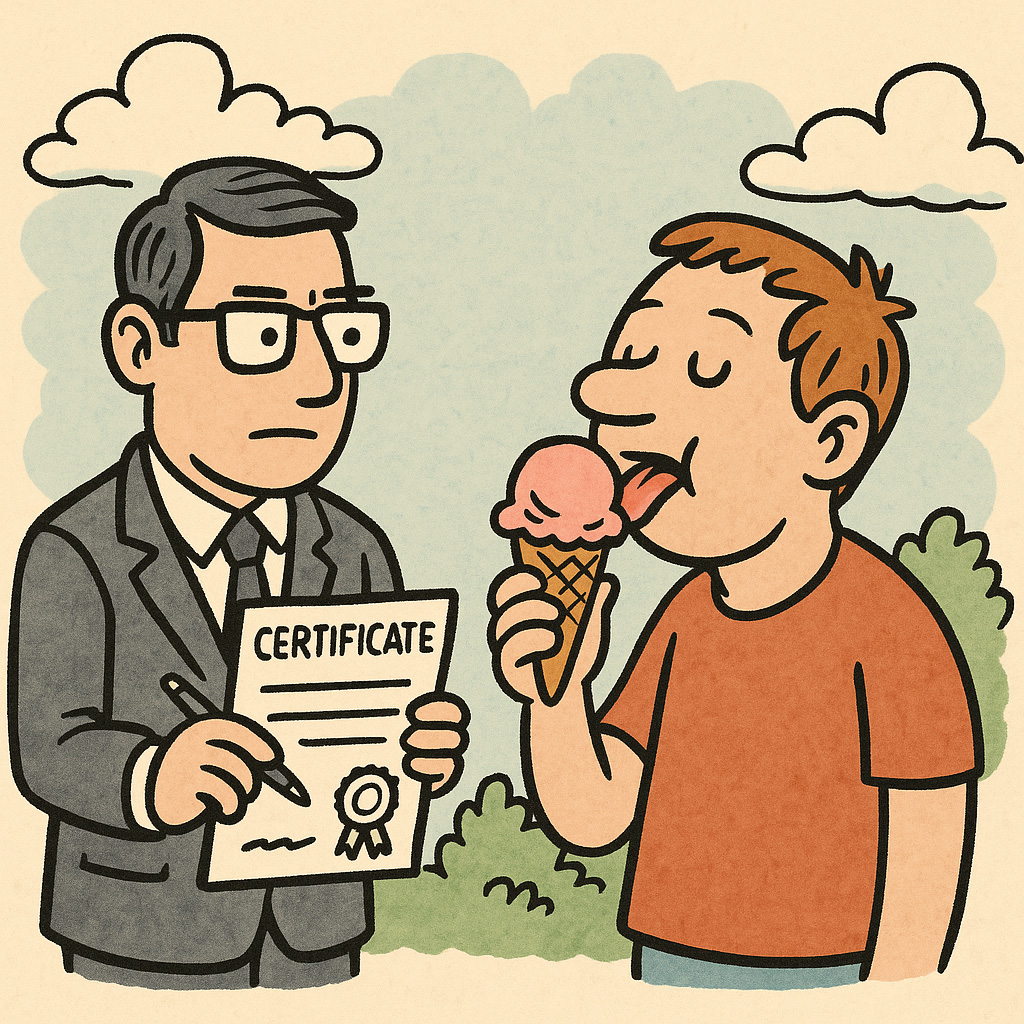
AI Is Not the Problem for Academia—Credentialism Is
Academia is facing a crisis with AI. The problem is outlined well in a YouTube video by James Hayton. It’s not just that students can now write papers using ChatGPT, but that professors, too, can rely on ChatGPT to read and evaluate them. Hayton pleads with his audience not to use AI to cheat, but it’s futile. It’s like when Japan opened its doors to Western technologies—some lamented the destruction of traditional aesthetics and customs, but when the economic incentives of efficiency are so overwhelming, resistance becomes pointless in a capitalistic world. You either adapt or perish. That said, I personally believe AI will ultimately improve academia. Let me explain.
What people like Hayton are trying to protect isn’t education itself but the credentialism that academic institutions promote. Today, schools are no longer necessary for learning. There are plenty of free resources where you can learn virtually anything, including countless videos of lectures by some of the world’s top academics.
You don’t go to college to be educated—you go for the credentials. College professors’ primary function isn’t teaching but verifying that you completed what you otherwise would have preferred to avoid. If your goal is to learn something you’re passionate about, being forced to prove it through exams and papers is just an annoyance. If you love ice cream, do you need someone to certify that you ate it?
The same logic applies to professors. Academic institutions exist to certify that the papers they publish were indeed written by them and not plagiarized. If they didn’t care about getting credit, amassing cultural capital, or winning awards, they could simply share their work online. If their ideas are truly valuable, people will read and spread them like memes. But what professors care about most is being credited. Posting papers on their personal websites doesn’t guarantee that. Just as hedge fund managers are greedy for financial capital, academics are greedy for cultural capital. Both are human—the only difference is the type of capital they chase.
Now, let’s imagine a brave new world in which AI renders credentialism obsolete. How bad would that really be?
Colleges would have to give up on grading and testing because they could no longer tell whether students were using AI to cheat. Are the achievements genuinely theirs, or just the result of better AI tools? These questions become irrelevant once credentialism is abandoned. Graduating from Harvard or holding a PhD becomes meaningless because you might have used AI to get them.
But if your creativity and insights are genuinely valuable, you’ll still be valued in society—while those who cheated and have no original ideas will be left behind. Isn’t that closer to true meritocracy? Isn’t credentialism what distorts meritocracy in the first place?
Hayton argues that developing skills, such as writing, is important, and therefore students shouldn’t use ChatGPT to write their papers. And yes, during this transitional period, writing is still a useful skill. But I’m convinced that, in the future, writing skills will become as obsolete as tapping out Morse code. In a capitalist world, any skill that can be automated eventually will be. Our value, then, will lie in offering what machines cannot (yet)—creativity and insight. By leveraging AI, students can focus on cultivating those traits instead of wasting time on skills that soon may no longer matter.
Some may argue that skills and creativity are inseparable—or at least that skills can spark creativity or serve as the source of unique insights. I agree, but I think those benefits will become negligible. If the connection were truly that significant, no skill would ever go obsolete. High school teachers would still be forcing students to learn how to find information in a book library. Some savants can still perform complex mental calculations without calculators, but we view those abilities as curiosities or party tricks. I think it makes more sense to focus on creativity and insight, and acquire writing skills only when necessary. Whether you need writing skills at all depends on your goals. Professors who insist on them may simply get in your way.
AI will usher in a future where we no longer care who came up with a great idea. A great idea stands on its own, regardless of whose name is attached, where they went to school, or how well it’s written. We’ll grow accustomed to working like chefs, who rarely receive credit for individual dishes because recipes aren’t copyrightable. To survive and thrive as human beings, we’ll stop obsessing over credentials and instead focus solely on what we’re passionate about learning. We’ll leave behind the certifiers and seek out real teachers to help us discover the things AI cannot teach. Professors will no longer need to whip students into studying. Only those eager to learn what they have to offer—hanging on their every word—will show up to their classes.
Subscribe
I will email you when I post a new article.


